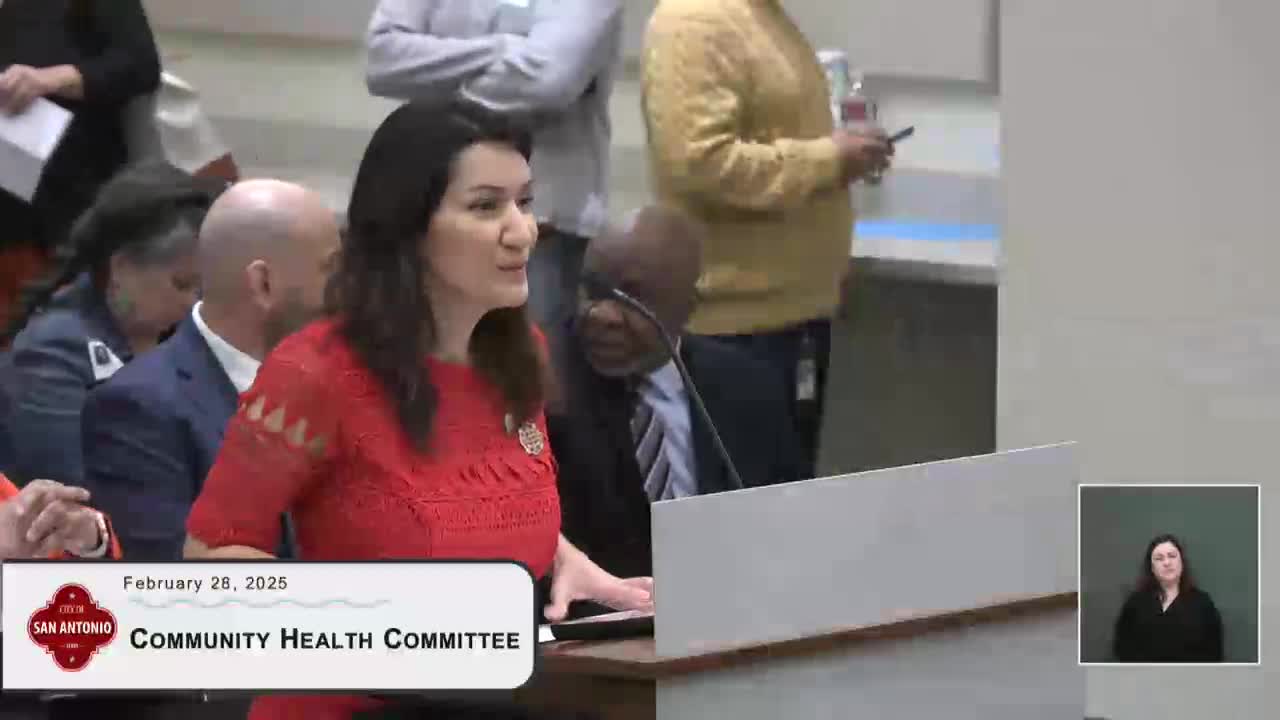Council committee approves $100,000 Reproductive Justice Fund after heated public comment
Get AI-powered insights, summaries, and transcripts
Subscribe
Summary
The committee approved a $100,000 allocation to a Reproductive Justice Fund following extensive public testimony both supporting and opposing the proposal; staff said funds would come from Metro Health’s current operating budget if the measure proceeds.
The San Antonio City Council committee approved a $100,000 allocation for a Reproductive Justice Fund after a long public-comment period that included advocates who called the money lifesaving and opponents who said it violated state law.
Supporters, several of them community organizers and health advocates, urged the committee to fund travel, navigation and other supports for residents seeking reproductive health care outside Texas. ‘‘Cien mil dólares is only a drop in the bucket,’’ said Erika Galindo, who identified herself as an organizer administering funds for travel and reproductive services, arguing that the payments would make care accessible to people who otherwise cannot afford to travel. Councilmember Cabello Jábrida said the city must ‘‘help and support our residents’’ and asked colleagues to back the allocation: ‘‘What is the price of human life?’’
Opponents also addressed the committee. A public speaker who identified himself as Paul Kommo said, ‘‘The abortion harms women and kills babies,’’ and urged the committee to focus on infrastructure instead of the fund. Other commenters referenced past meetings and litigation on the topic and warned of legal exposure.
During the committee discussion, Metro Health staff said the funds for the request would be identified within the department’s current operating budget for the coming fiscal year and described operational constraints if federal or state funding shifts. Committee members asked about legal exposure from proposed state legislation (identified in discussion as SB 730, newly introduced) and were told staff would monitor developments and ensure compliance with applicable law.
The motion to approve the $100,000 allocation passed by voice vote; no roll-call tally was recorded in the committee transcript.
Clarifying details from the public record and testimony: several proponents described practical barriers to care: one speaker noted the nearest clinic for some residents would require an approximately five‑hour drive and said many residents lack insurance or access to contraception. Metro Health staff and councilmembers emphasized that any program would be administered by qualifying nonprofit partners and that detailed applicant capacity and local-preference criteria were under discussion.
Councilmembers also discussed prior council action on reproductive-justice issues, noting a 2022 resolution on reproductive justice and referencing community organizations that have previously administered related services. Several councilmembers said they hoped the $100,000 would become a recurring budget item rather than a one-time appropriation.
The committee did not record a separate, detailed implementation plan at the meeting; staff committed to return with budget-language details and compliance review in the normal budget process.
